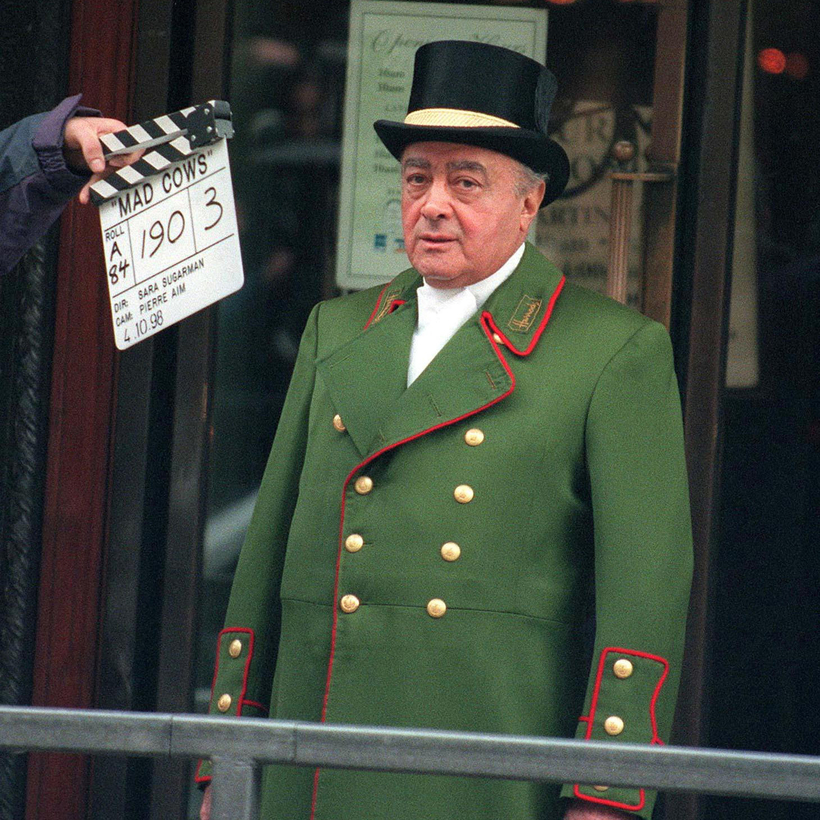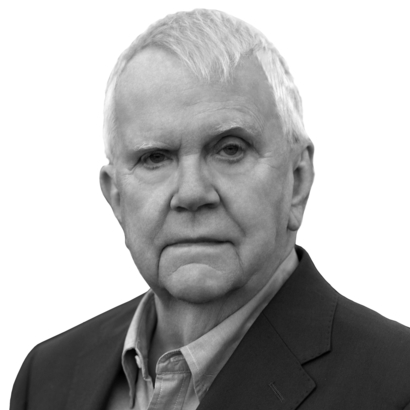“The chairman will meet with you now,” said the secretary who had come to fetch me. I entered his enormous office, which stretched along a corner of Harrods in Knightsbridge. The curtains were drawn.
On that day in 1997, Mohamed Al-Fayed rose from his chair to greet me. He was short and bald with a toffee-colored complexion. His stout body was dressed in a gray bespoke suit. On his shirt, little hippos copulated against a pastel-blue cotton background.


